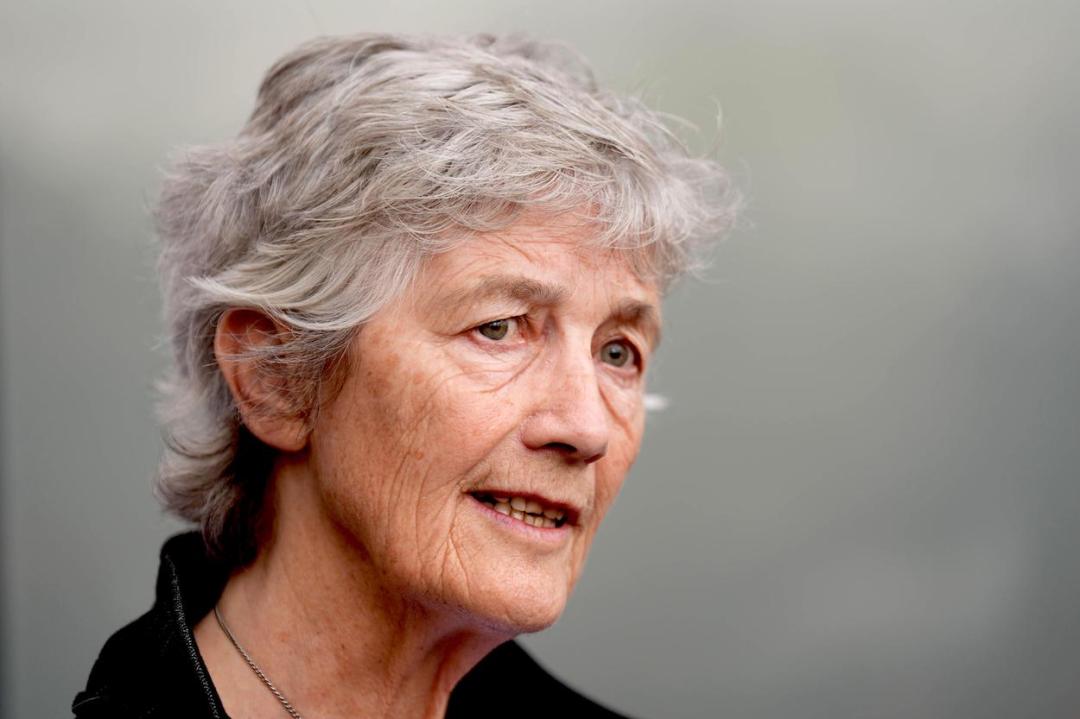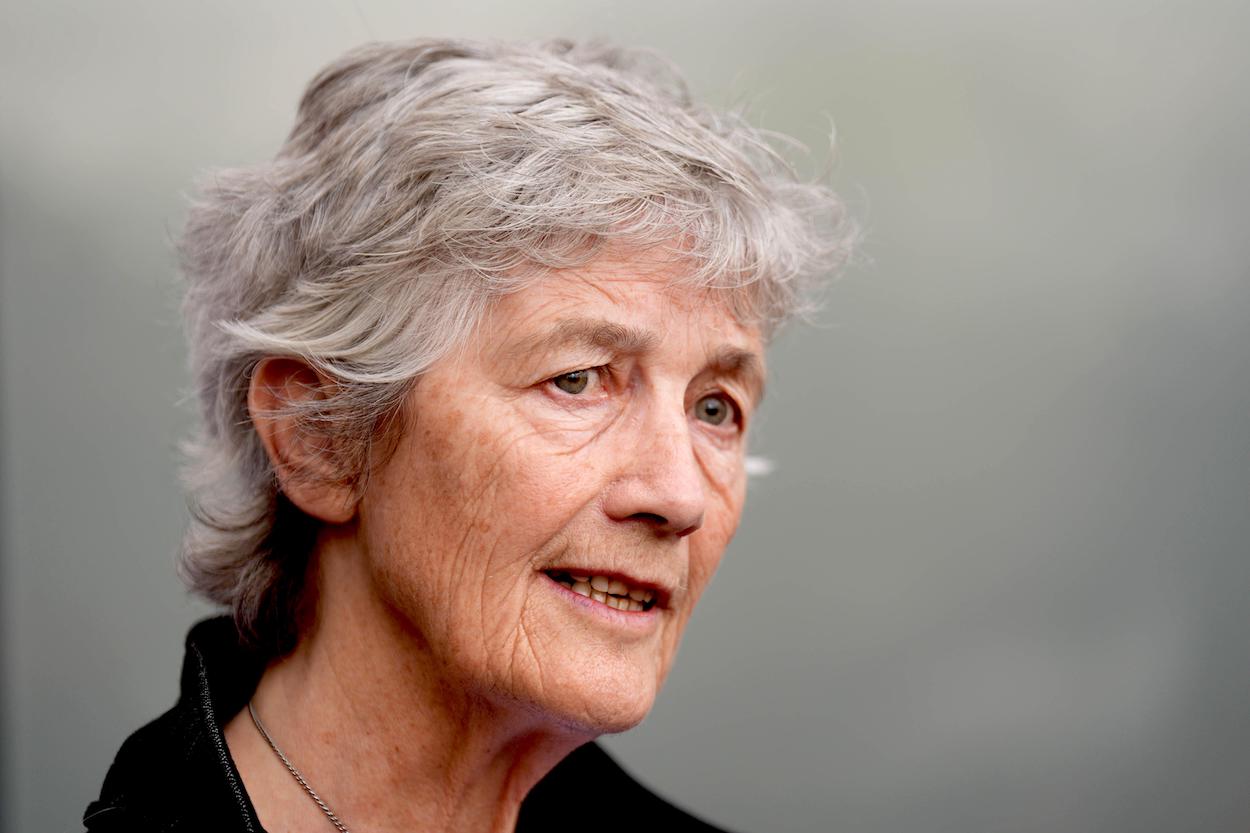‘How could you possibly say the EU is good as it stands?’ the woman says. Brexit, she continues, is a ‘first step [in] exposing the EU’. The speaker is Catherine Connolly. She is the frontrunner to win Ireland’s presidential election tomorrow.
The footage stands out for two reasons. One, it’s rare for an Irish politician so close to high office to be seen as critical of the EU. Two, the video has only just resurfaced, despite being nine years old. While support for EU membership in Ireland typically polls between 70 and 90 per cent, opinion is becoming less homogenous, an interest in alternative views about the bloc is growing.
The video of Connolly surfaced and entered the national conversation a week ago. In the clip, she doesn’t just criticise the EU generally, but attacks what she sees as the EU’s creeping ‘militarisation’. Money shouldn’t go to arms sales while Ireland is suffering from welfare cuts, she says. In the last few days, Taoiseach Micheal Martin has responded to the video. ‘We need to start calling out people’ who say “oh, but I’m pro-EU” while campaigning against its treaties.’
This is Ireland’s first presidential election in over 50 years with only two candidates: independent TD Connolly, backed by Sinn Fein, and former Fine Gael minister Heather Humphreys. Irish presidential races are normally more crowded, but several contenders dropped out or failed to qualify. Social conservative Maria Steen narrowly missed nomination, while former Irish football manager Jim Gavin withdrew three weeks before polling day over a dispute over €3,300 of rent.
Connolly has surged ahead in the campaign by being outspoken and running a lively social media operation, including viral videos of her doing ‘keepie-uppies’ on the street. Humphreys, by contrast, has played it safe. A video of her meeting young voters in Dublin captures her cautious tone: ‘Europe is very important’, she says, ‘and Europe has been very good to us. So, we have to be part of Europe.’
The narrow field has brought greater scrutiny to both women’s views. Irish presidential elections tend to be a personality contest, focused on a candidate’s background, experience and integrity. But having just two candidates, with one backed by a governing party and the other an independent from the opposite end of the political spectrum, has meant that the vote has developed into a referendum on the government. It’s become an outsider-versus-insider vote, something the Connolly campaign has sought to capitalise on. Connolly has framed herself as being a symbol of a ‘movement’ and a ‘new Ireland’.
Foreign affairs also typically feature in Irish presidential debates, perhaps because of the office’s largely ceremonial role. The president is the face of the country. While general elections focus on the economy and usually yield more conservative outcomes, the presidency often serves as an outlet for voters’ more liberal views.
The war in Gaza is in the mind of many Irish voters. There is a very high level of public support for Palestine. Polls report that over 80 per cent of the Irish public believe that Israel’s actions in Gaza amount to genocide. Many on the Irish left have been frustrated by what they see as the lacklustre response of the EU to the war. While it isn’t clear that this has dented support for EU membership, it has fuelled demand for a figurehead willing to voice pro-Palestine views. The current president, Michael D. Higgins, has set an example by openly criticising Israel and even suggesting it should be excluded from the UN.
Barring a major upset, Connolly will win
On military matters: Connolly is a staunch defender of Irish ‘neutrality’. With calls for Ireland to do more to contribute to European-wide defence (don’t forget that Ireland relies on Britain for air protection) and the Irish government planning to dilute the ‘triple lock’ which restricts troop deployments abroad, Connolly has called for a referendum on the issue of neutrality. Critics see irony in her position: while neutrality is central to her message, support for Palestine and a reliance on British defences somewhat complicates things.
Barring a major upset, Connolly will win. In her outspoken style, she mirrors Higgins’s readiness to challenge orthodoxy. Critics fear this could lead to a constitutional crisis about Irish (re)unification. When the Brexit footage resurfaced, Connolly denied being pro-Brexit, saying she was only supporting the democratic process. Still, Brexit has revived the (Northern) Irish question. Connolly has urged the government to prepare for unification, echoing Sinn Fein leader Mary Lou McDonald’s call for a referendum by the end of the decade. A Connolly presidency may not guarantee unification – she may just be offering fodder to supporters – but it would make the issue harder to ignore.








Comments